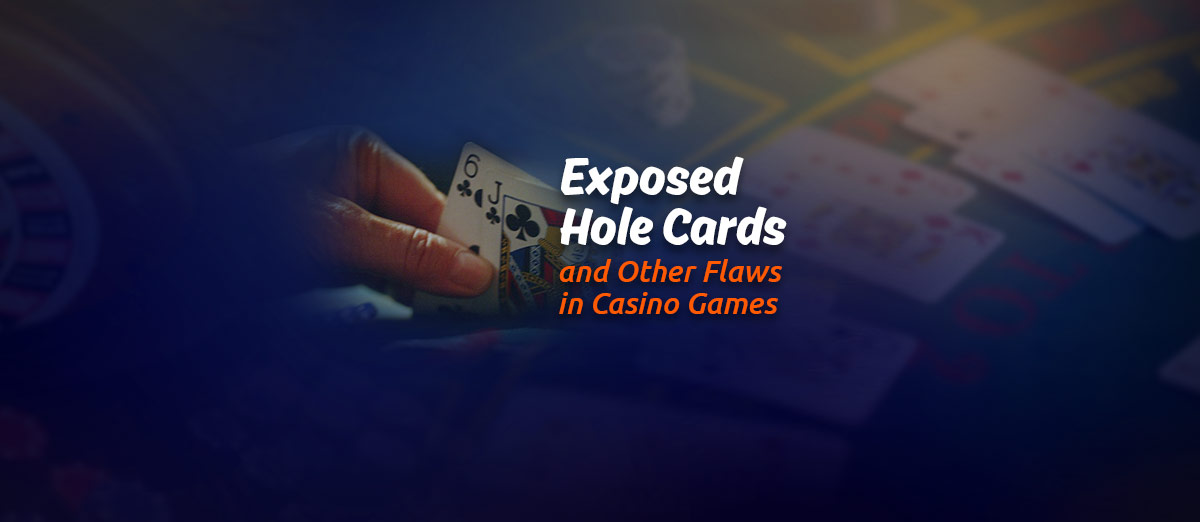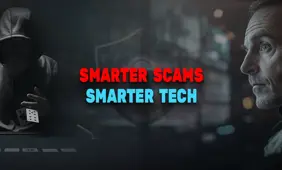Hole Carding - The Human Factor and Equipment Vulnerabilities in Casino Table Games

In the last decade, casino table games have increasingly employed shuffling machines rather than dealing by hand. Historically, mechanical shufflers have suffered many flaws, some of which have benefitted alert advantage players, but overall they are faster, safer, and more secure than their human counterparts.
In the late nineties, during a visit to Las Vegas, I befriended a number of unique “characters” who flitted between the worlds of sleight of hand and gambling, and I often carried a calculator with a program I used to perform a seemingly miraculous divination of a hole card. This was just a card trick (an excellent one), but it attracted the attention of one gambler who was later disappointed to learn it was merely an ingenious mathematical stunt.
Nevertheless, we bonded over sleight of hand techniques, and a week or so later, I found myself accompanying him to one of the many land based casinos in Vegas where we took a walk around the gaming floor. We settled at a cheap blackjack table in search of bad odds and free drinks. After a while, my companion directed my attention toward a nearby table, whispering that I should watch the dealer’s cards closely.
As the dealer took the last card from the shoe and slid it face down under his first (face up) card, he lifted the long edge of the card too high, and sure enough, from a few feet away, I had a perfect view of the dealer’s hole card!
As it turned out, this was not a one-off but was also not deliberate: the dealer had innocently developed a bad habit of failing to protect his hole card. I was quickly invited to help my “friend” spot those cards from afar and signal their value while he played at that table.
Thankfully, I was smart enough to turn him down during the ride back to my motel.
The cause of these situations is almost always the human factor, so advantage players would spend a lot of time searching for weak dealers. I knew this was a common problem, but until that night, I’d never seen an exposed hole card in the wild since British casinos (where I had played most) dealt only one card to the dealer and only dealt subsequent cards after all players had acted.
Spotting exposed cards like this is not illegal but - believe it or not - casinos aren’t exactly delighted if players identify weaknesses in their games. So, while exciting to see, my enthusiasm didn’t stretch as far as helping my friend make a killing since I was all too familiar with a scene in Scorsese’s film “Casino” where two cheaters are hauled into the back room and one crippled for attempting similar advantage play!
In fact, Scorsese’s “cheaters” were nothing of the sort, despite using radio signals and electronic thumpers to signal information; that information was freely available to anyone who could spot it, so the real problem was that a dealer was innocently exposing cards. That’s pretty solid logic, but I doubt it would hold up against mobsters in a casino basement.
Exposing Hole Cards and Other Problems for Dealers
While riffling cards together, some dealers lift a little too high, and a player at third base may see the last couple of cards on one side of the shuffle. This information could be invaluable and give those players a strong edge without the need for inside assistance.
Worse still, some dealers might fail to interlace cards thoroughly, leaving entire clumps of cards undisturbed. If players happen to be memorizing sequences of cards, those sequences would be far easier to identify after such a shuffle.
Even competent shufflers can create vulnerabilities; dealers who riffle cards together in a clean, thorough manner create predictably clean shuffles resulting in an easier-to-predict result for advantage players who can predict the outcome of shuffling procedures.
Games dealt by hand have similar issues, and I’ve seen dealers who have no idea they are involuntarily flashing hole cards as they deal the last card to a player; while pushing that last card off the deck, the next card moves slightly off the deck and from a low angle, just a slither of that card’s index is enough for smart players to identify it as an ace, ten or rag.
Hand-dealt games also allow players to spot inconsistencies like tiny bends or burs on the edge of cards that they use to steer valuable cards to improve their own hands or bust the dealer’s.
Casino Equipment Vulnerabilities
Believe it or not, early shuffling machines inherited some of these weaknesses. For example, after cards were mixed inside one machine, hands were deposited into a small tray while bets were still being made! This meant players could see any bends or warps in those cards before deciding where and how much to bet big, and I once demonstrated this flaw for a client in Nevada who had bought the machines believing they were “unbeatable”.
Even old-school casino equipment can have subtle but devastating vulnerabilities.
At one point, a particular brand of casino shoe was prone to exposing cards thanks to a poorly-designed plastic ledge that was a little high, creating a gap through which the index of cards being dealt could be spotted. This made hole carding extra easy for some players.
Casino operators, managers, and security staff might never have realized this was a problem until a player was caught with a mirror hidden in a packet of cigarettes! Thanks to this homemade periscope, the player had a chips-eye view from the felt to the shoe as if he had his head against the table to see cards as they were dealt!
Who knows how many other gaffed Marlboros or Camels had been on that table (and countless others) before the problem was discovered? Since then, technology has made player peeking more deceptive with tiny cameras built into all manner of ordinary-looking objects, and in one case, a hundred-year-old cheating device normally used for pulling cards up the sleeve was retro-fitted with a miniature video camera that slid in and out for a game of high-stakes peek-a-boo.
Perhaps the most remarkable method for taking advantage of human dealers was a method that depended entirely on body language to gauge the value of their hole card. In a little booklet titled “Read The Dealer,” the author identified mannerisms that, in some cases, would indicate whether the dealer held a weak or strong hand, information that might be very useful to expert players.
As a result, dealers no longer know the value of their hole cards which they slide into a small device to read a special mark on the face of tens and aces; since this is solely to check for a blackjack if the hand misses, the dealer has no idea whether they are about to hit or stand and cannot possibly signal information consciously or otherwise.
There are many ways an innocent dealer might offer unconscious advantages to observant players, but even the best dealers can get tired during a long shift. So maybe machines are better overall, but personally, I prefer the human touch, and when a hand-dealt game is offered, I tend to steer myself in that direction.
Overall, dealers tend to develop habits that protect the games they deal in, but no one is infallible, and not every dealer is as skilled or as consistent as they would like to be. Next time you’re in a live game of twenty-one or baccarat, watch how they shuffle and deal.
You never know what you might see.





Review this Blog
Leave a Comment
User Comments
comments for Hole Carding - The Human Factor and Equipment Vulnerabilities in Casino Table Games